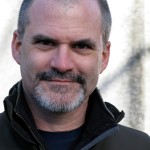 Formal education (masters or Ph.D) or design/manufacturing engineering experience?
Formal education (masters or Ph.D) or design/manufacturing engineering experience?
Where do you look when hiring a new reliability engineer? Do you head to U of Maryland or other university reliability program to recruit the top talent? Or, do you promote/assign from within? Where do yo find the best reliability people?
What make a good reliability engineer?
Once you hire someone, how do you know if they are a ‘good’ reliability engineer? What is the scale we use to judge?
I would suggest a few things are important:
- Technical skills — able to calculate sample size with a simple calculator
- Business skills — able to balance warranty risk with sample size requests
- People skills — able to influence others to do the right thing
Basically any of us has to just get results. Help the team/organization in achieving and maintaining the reliability objectives. Look for and avoid risks, plus identify and resolve existing issues.
We want reliability engineers that move effortlessly between setting up complex lab experiments to explaining the reliability program to key customers and senior management. We have to be well versed in statistical and presentation skills.
So, what on the resume or during the interview reveals the tendency to be a ‘great’ reliability engineer?
Two Examples of Reliability Engineers
Years ago I had the chance to assess two programs with two very different reliability engineers supporting each program. The first, Simon, told me about all the tasks he did. He pretty much drafted the entire suite of FMEA studies for a program and quickly reviewed it with the team. He ran parts count predictions, talked with all key vendors, designed and ran numerous reliability and environmental tests, and even did the derating and stress/strength calculations of most components.
Nearly everyone in the organization relied on Simon to ‘do’ reliability. When something went wrong as it often did, it was Simon doing the failure analysis and root causes analysis work. He then setup and ran the confirmation of a solution evaluations and signed off on the resolutions. Simon was the entire reliability program.
He got things done. Yet, when he left the organization so did the reliability program.
The second person, Marta, told me about how the organization did reliability work. How she setup guidelines, processes, and procedures that guided the decision making of the entire team. How she got involved with the tricker tasks of complex life test designs or evaluation of complex vendor testing.
Marta’s story echoed with everyone else in the organization that I interviewed. The electrical engineer knew about and how to do component derating and she did. She also knew the basics of reliability data analysis and could judge vendor claims, plus she could design and run component and board level accelerated life tests, and knew when to do so.
Each person from the program manager to the technical marketing manager, from that electrical engineer to the software design team knew the reliability goals, and how they participated in achieving them. When Marta left the organization the reliability program continued to thrive.
Which is the better reliability engineer? How do you find these people? Let me know in the comments, please.
Bio:
Fred Schenkelberg is an experienced reliability engineering and management consultant with his firm FMS Reliability. His passion is working with teams to create cost-effective reliability programs that solve problems, create durable and reliable products, increase customer satisfaction, and reduce warranty costs. If you enjoyed this articles consider subscribing to the ongoing series at Accendo Reliability.